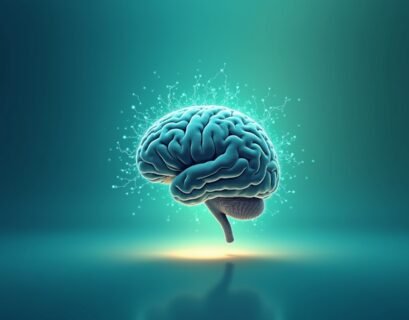In a world that often champions productivity, staying organized, and meeting deadlines, many individuals find themselves grappling with struggles that are invisible to others. Adults living with ADHD may relate all too well to the feeling of being misunderstood or judged. Have you ever felt overwhelmed by seemingly simple tasks? You’re not alone. The stories of those who navigate life with ADHD reveal a spectrum of experiences, and breaking the stigma surrounding this neurodevelopmental disorder is vital for fostering empathy and understanding.
This guide explores not just the challenges faced by adults with ADHD, but also the courage, resilience, and triumphs that accompany their journeys. Through personal stories and practical advice, we aim to shine a light on the unique experiences of those living with ADHD while offering insights that can resonate with anyone striving for self-acceptance in the face of societal expectations.
Understanding the Core Issue: The Stigma of ADHD
The Misunderstandings of ADHD
Breaking the stigma surrounding ADHD begins with unpacking its complexities. ADHD—Attention Deficit Hyperactivity Disorder—is often characterized by inattentiveness, hyperactivity, and impulsivity. Yet, the media and common societal narratives can perpetuate oversimplifications that lead to misunderstandings. Many adults with ADHD often fight against the stereotype of being lazy or uninspired. In reality, the condition is multidimensional, affecting different aspects of a person’s life, from work and relationships to self-esteem.
The Impact of Stigma on Relationships
The stigma attached to ADHD can complicate relationships. Partners, friends, family members, and coworkers may misinterpret the behaviors associated with ADHD—such as forgetfulness or difficulty focusing—as a lack of effort or disregard for others. This misconception can lead to frustration and resentment, often resulting in them feeling isolated. Recognizing the validity of ADHD experiences is a crucial first step towards fostering meaningful connections and reducing misunderstanding.
Practical Tips and Strategies: Navigating Life with ADHD
Create a Structure That Works for You
One of the most effective strategies for adults managing ADHD is the creation of a personalized structure. Unlike the one-size-fits-all approach often recommended, consider the following recommendations:
-
Daily Planning: Use a journal or digital planner to outline daily tasks and goals. Break larger tasks into smaller, manageable steps. For example, if you find cleaning overwhelming, list smaller tasks like "pick up clothes" or "wash dishes."
-
Visual Cues: Utilizing sticky notes or digital reminders can serve as visual cues to help you stay on track. Whether it’s a colorful calendar on your wall or reminders on your phone, find what resonates with you.
- Time Management Techniques: Experiment with techniques like the Pomodoro Technique, which involves working in designated blocks followed by short breaks. This can help keep your focus sharp without the risk of emotional burnout.
Communication is Key
Open communication can significantly enhance relationships for those living with ADHD. Whether with a partner or a boss, expressing your needs can foster understanding.
-
Express Needs: “I need a quiet space to focus for a while” or “I sometimes need reminders for tasks” are important discussions to initiate. Being candid about how ADHD affects daily life can lead to collaborative problem-solving and improved dynamics.
- Active Listening: It’s not just about articulating your own feelings. Practicing active listening allows you to understand others’ perspectives, which can be invaluable in personal and professional relationships.
Emphasize Self-Compassion
Living with ADHD often comes with challenges that can lead to negative self-talk. Developing self-compassion is essential. Consider incorporating self-care rituals like meditation or mindfulness into your routine. Engaging in positive affirmations can help mitigate feelings of inadequacy, reminding you that ADHD is not a defining trait but a part of your unique narrative.
Real-Life Examples: Shared Stories of Struggle and Triumph
Sarah’s Journey: Reframing Disorganization
At 32, Sarah felt like she was constantly fighting against a tide of chaos. "I would forget important meetings and make plans only to realize I’d forgotten them,” she shared. For Sarah, it felt like the world expected her to function seamlessly, but that was rarely true.
Her turning point came when a friend shared resources about ADHD. "I learned that I wasn’t alone, and it was validating to hear others describe their struggles." Sarah discovered strategies like time-blocking and setting reminders, turning her disorganization into a manageable part of her life. Now, she embraces her journey, sharing her experiences with others both online and within her community, educating those around her on breaking the stigma.
Dave’s Perspective: The Workplace Challenges
Dave, a professional in his 40s, found himself struggling in a high-paced corporate environment. "I felt like I was drowning,” he recounted. Tasks that took his colleagues moments left him feeling overwhelmed and inadequate. It wasn’t until he spoke to his employer about his ADHD diagnosis that things began to change.
“I sat down and explained my challenges,” Dave said. His company was receptive, providing him with a structured environment and regular check-ins that allowed him to thrive. By sharing his story, he not only helped himself but also raised awareness for others in various stages of their ADHD journey.
Lin’s Relationship Transformations
Lin faced the struggle of maintaining relationships due to her ADHD traits. “I often interrupted friends mid-sentence, not out of disinterest, but because my mind was racing with thoughts,” she explained. It took time and practice to learn how to engage with those close to her while respecting their conversations.
Through patience and candid discussions about her challenges, Lin learned to signal when she was feeling particularly distracted, allowing her friends to understand and adjust their expectations. "They became allies instead of critics,” she noted. Now, her relationships are strengthened by this honesty, fostering an environment where everyone feels valued.
Overcoming Challenges: Addressing Barriers to Acceptance
Navigating Misconceptions
One of the most significant obstacles adults living with ADHD encounter is the prevalence of misconceptions. Take time to educate friends and family about ADHD, emphasizing that it is not a choice or a character flaw. Utilize resources—books, articles, or support groups—that can provide clear, accurate information.
Facing Self-Doubt
Overcoming self-doubt and societal judgment can be difficult. Remember that ADHD does not diminish your capabilities or worth. Practicing mindfulness and celebrating small victories can combat negative self-perceptions.
Seeking Professional Guidance
While personal stories are powerful motivators for understanding ADHD, professional guidance can provide tools and coping strategies tailored to your specific situation. Whether through therapy, coaching, or support groups, connecting with mental health professionals can help you break through barriers and discover strength in your journey.
Conclusion: Embracing Our Stories, Breaking Stigmas
Breaking the stigma of ADHD is not merely about individual narratives; it’s about building a collective understanding rooted in empathy and acceptance. Whether you are living with ADHD, love someone who does, or simply wish to enhance your awareness, taking the time to explore these diverse stories can pave the way for deeper connections.
The key takeaways echo a universal truth: we are all unique individuals with strengths and challenges. Embracing your authentic self, advocating for your needs, and fostering compassion in your relationships is essential. With consistent effort, understanding, and a supportive network, adults living with ADHD can thrive, transforming stigma into solidarity.
The journeys of those living with ADHD remind us that we should never shy away from sharing our stories. Through honesty, education, and connection, we can work together to create a world where everyone, regardless of their challenges, is celebrated for who they are. Liberating ourselves from stigma not only enriches our lives but also inspires hope for a future filled with acceptance and unity.














